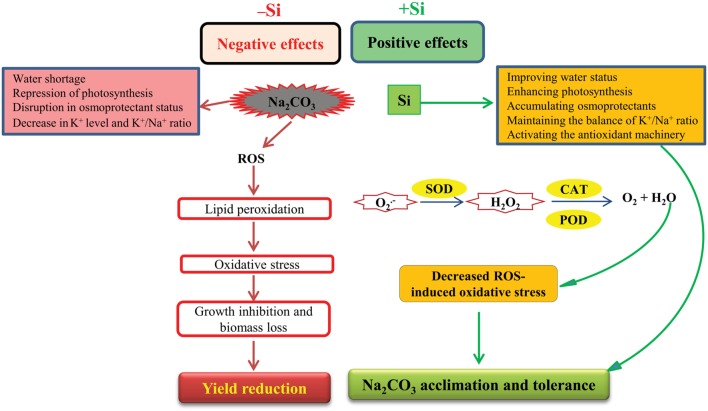FIGURE 4.
A schematic diagram representing effects of alkaline stress (e.g., Na2CO3 stress) and defensive system induced by seed-priming with Si, underlying maize alkaline stress tolerance. Alkaline stress causes negative impacts by repressing photosynthesis, disrupting osmoprotectant status and negatively influencing water status and ionic balance. Excessive alkalinity can promote production of reactive oxygen species (ROS). ROS contribute to lipid peroxidation, resulting in oxidative stress that causes growth inhibition, biomass loss, and subsequently extreme yield reduction. Conversely, seed-priming with Si shows protective mechanism against alkaline stress by improving water balance and photosynthesis, accumulating osmoprotectants and maintaining ionic balance. Si also enhances the detoxification of ROS by stimulating the activities of antioxidant enzymes, such as SOD, CAT, and POD, leading to oxidative stress mitigation. As a result, Si improves alkaline stress tolerance by retaining better growth of alkaline-stressed plants. , superoxide; H2O2, hydrogen peroxide.

